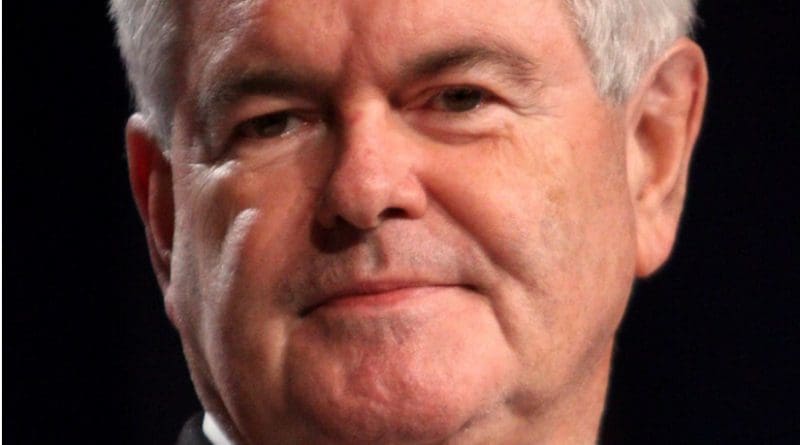Trump Ally Gingrich Says Maybe US Shouldn’t Defend NATO Allies That Hit Military Spending Target – OpEd
By Mitchell Blatt*
Former Republican Speaker of the House and shortlist finalist for Donald Trump’s VP selection Newt Gingrich said on CBS News this week that NATO allies “ought to worry about our [U.S.] commitment.”
This came after Trump said he would consider only defending a NATO ally from Russian incursion “if they fulfill their obligations to us.” Trump has often accused American allies of not paying their fair share. In many cases, he has used made-up numbers to make his argument. For example, he said of South Korea, “They don’t pay us.”
In this case, Trump didn’t set out specifics about NATO, but many NATO countries have come under criticism for spending well below the target of 2% of GDP on defense. Only five of the 28 members meet the goal. Those countries are the U.S., Greece, the UK, Estonia and (since 2015) Poland.
Asked specifically about whether the U.S. would defend Estonia, which borders Russia, from an attack, Gingrich said,
“Estonia is in the suburbs of St. Petersburg. The Russians aren’t gonna necessarily come across the border militarily. The Russians are gonna do what they did in Ukraine. I’m not sure I would risk a nuclear war over some place which is the suburbs of St. Petersburg. I think we have to think about what does this stuff mean.”
Estonia is increasing its military spending to 2.1% by 2016, but it is the exception when it comes to Russia’s neighbors. Latvia and Lithuania both spent less than 1% of GDP on military in 2014, among the least of all NATO countries, and after increasing their spending to 1% of more in 2015, they remained near the bottom of the pack.
Before endorsing Trump, Gingrich was a fierce critic of Putin’s Russia and Obama’s supposed weakness. Gingrich wrote in 2014 that Obama had a strange “tranquility” even “as Russian President Vladimir Putin continues to flex his muscles and expand his policies.” After Putin invaded and annexed Crimea, Gingrich said, “This is a real crisis,” the dangers of which would be felt “around the world.” Gingrich furthermore stated that the Obama administration lacked credibility. Furthermore, Gingrich wrote, Obama’s “naive fantasy of a ‘good Russia’ has been shattered in the last week.”
Finally, Gingrich concluded that the U.S. must make sure Russia takes NATO seriously and knows the U.S. is prepared to use force:
The very principles that led Putin to use force in Crimea could be applied to the Baltic states of Latvia, Lithuania and Estonia. There are a lot of ethnic Russians in all three countries (and especially in Estonia). They are much closer to Russia than is Crimea — it is 228 miles from Tallinn, the capital of Estonia, to St. Petersburg.
The great difference is that the three Baltic states are members of NATO. Any Russian adventurism in this area could force the enormous choice of either directly confronting Russia in its own neighborhood or allowing NATO to collapse because we are unwilling to meet our treaty obligations.
Convincing Putin that we take seriously his toughness and his determination, and we are prepared to meet it, could be a vital step toward avoiding a future disaster.
- Gingrich, March 6, 2014, CNN, “Beyond empty symbols, a serious strategy for dealing with Russia”
About the author:
*Mitchell Blatt moved to China in 2012, and since then he has traveled and written about politics and culture throughout Asia. A writer and journalist, based in China, he is the lead author of Panda Guides Hong Kong guidebook and a contributor to outlets including The Federalist, China.org.cn, The Daily Caller, and Vagabond Journey. Fluent in Chinese, he has lived and traveled in Asia for three years, blogging about his travels at ChinaTravelWriter.com. You can follow him on Twitter at @MitchBlatt.
Source:
This article was published at Bombs and Dollars

